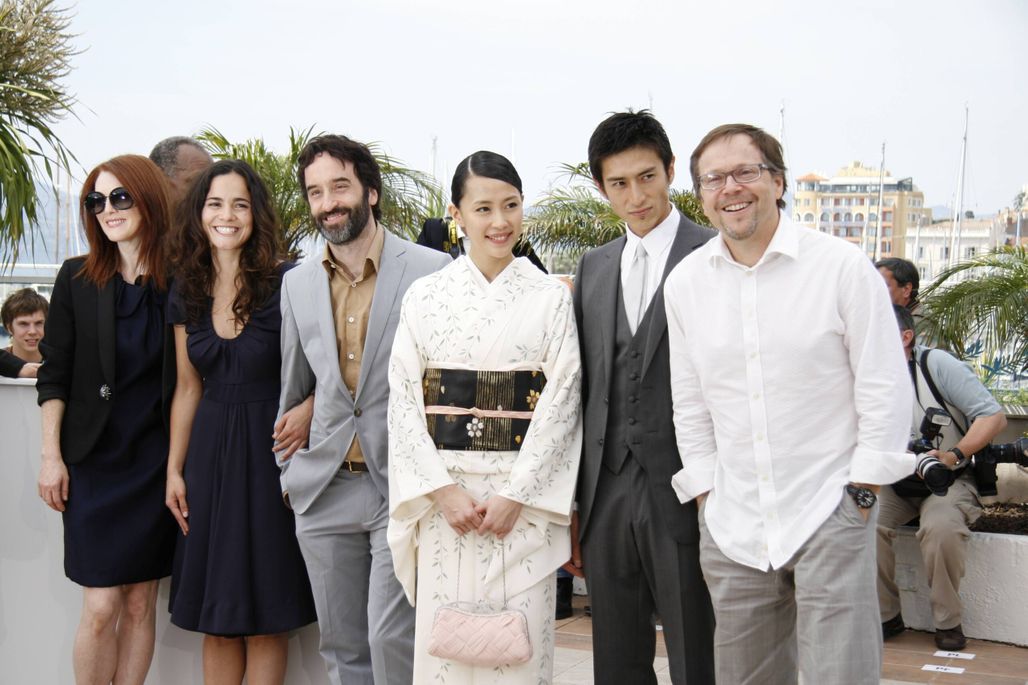
Press conference: “Blindness”

Blindness, the opening film and the first film in competition, was presented to the press today. Brazilian director Fernando Meirelles was present with cast members Julianne Moore, Gael Garcia Bernal, Danny Glover, Alice Braga, Yoshino Kimura, Yusuke Iseya, and actor/screenwriter Don McKellar.
Fernando Meirelles on the book adaptation to film:
“When I first read the book, what really attracted me was exactly that, to see the fragility of civilization. We consider ourselves so strong, sophisticated, and solid, and then one thing goes and everything collapses… We’re skating on thin ice. Anything can happen.”
On the symbolism of blindness:
Fernando Meirelles:
“At first what attracted me was this idea of civilization collapsing, but then reading the book over and over and then working on the script with Don, I started to find so many different layers…You can see it through a psychological point of view and just try to see how humans are so primitive, like animals. We play civilized, we play sophisticated people because we have food, we have everything very well established, but if we lose this, it reveals what we really are underneath…”
“We could see it though a philosophical point of view or a political or a sociological, like how do we organize a society when a society collapses, how do we start to organize it again? Should we be ethical like the king of ward one or should we be tough like the leader of ward three who can feed his colleagues? There are so many layers and so many different questions in this film, that’s what I love about it.”
Don McKellar:
“To me it’s about surfaces, the thin visual surface that we are obsessed with and we don’t see beneath that. The film is about human dignity, defining your dignity through your own actions and that’s what all the characters come to realize, I think…”
Danny Glover:
“When we look at Katrina, it’s not particularly what the government did or did not do, the fact that these people were invisible, period. We were blind to who they were, period. And we have that all around the world. When we see the what is happening in Somalia, and happening in Irak, happening in Darfur and everywhere else, these people are for the most part invisible to us. The idea that it represents an allegory, blindness itself, but we live in a world where we are inundated with these ideas and perceptions. In some sense, we lose those ideas and perceptions or they come as a question, but we also frame within that world. We do not see people. ”
Don McKellar, on the political aspects of the story:
“Lots of events were brought to mind, but when we were talking to José Saramago about the rights, he wanted it to remain an allegory. He didn’t want it to be a direct analogy of any particular regime, so politically we wanted it to be a freewheeling kind of metaphor that applies to any official neglect.”
Julianne Moore on the camaraderie of the making of:
“We were very interdependent. Obviously the first day we went in there and looked at the sets, you kind of had to look away, otherwise you got sick… We were always together. We formed a community which is sort of what this film is about. ”


